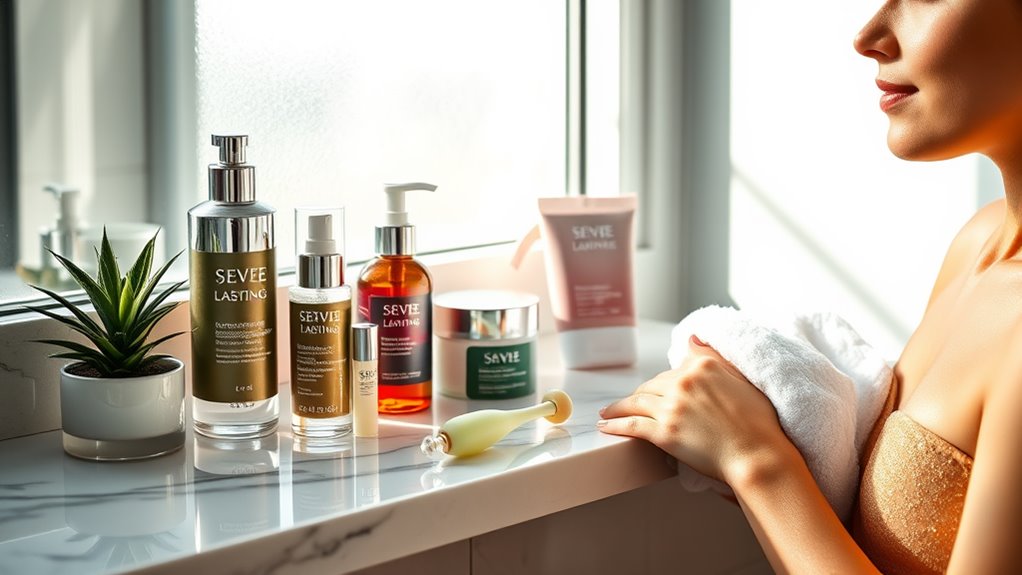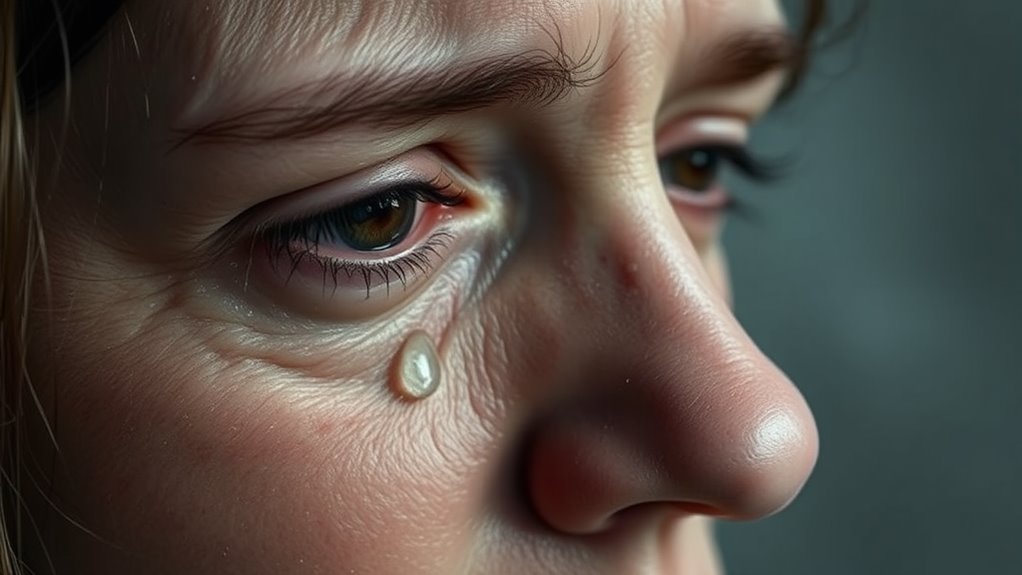3 Night Habits That Help Your Skin Heal While You Sleep
To help your skin heal while you sleep, establish a consistent nighttime routine that includes cleansing, treating, and moisturizing. Incorporate nourishing products rich in antioxidants and peptides, and consider using retinol for texture improvement. Prioritize a quality sleep environment by keeping your bedroom dark, cool, and quiet to promote deeper sleep. These habits can enhance your skin’s regeneration processes, leading to a healthier appearance. Discover how to implement these strategies effectively for best results.
Key Takeaways
- Establish a consistent nighttime skincare routine to enhance skin repair and maintain skin’s natural rhythms.
- Use nourishing products rich in antioxidants and peptides to support skin healing overnight.
- Prioritize quality sleep in a dark, cool, and quiet environment for optimal skin rejuvenation.
- Incorporate targeted treatments, like retinol, to stimulate collagen production and improve skin texture during sleep.
- Limit electronic device use before bed to reduce blue light exposure, promoting better sleep quality and skin health.
Establish a Consistent Nighttime Routine
To promote skin healing effectively, establishing a consistent nighttime routine is crucial. Your skin undergoes significant repair during sleep, and a well-structured sleep skincare routine enhances this process.
Start by cleansing your face to remove impurities and excess oil, allowing your skin to breathe. Follow with a targeted treatment, such as a serum that addresses specific concerns like acne or hyperpigmentation.
Moisturizing is key, as it locks in hydration and supports the skin barrier. Aim to complete your routine around the same time each night, as consistency reinforces your skin’s natural rhythms. Additionally, incorporating nighttime skincare rituals can further boost your skin’s rejuvenation while you rest.
Incorporate Nourishing Skincare Products
A consistent nighttime routine sets the stage for incorporating nourishing skincare products that enhance skin healing.
Focus on formulations rich in antioxidants, peptides, and hyaluronic acid, as these ingredients promote cellular repair and hydration.
Consider using a retinol product to stimulate collagen production, which aids in reducing fine lines and improving skin texture.
Incorporate a gentle cleanser to remove impurities without stripping essential oils.
Follow up with a pH-balanced toner to prep your skin for subsequent treatments.
Finally, seal in moisture with a rich night cream or facial oil that supports the skin barrier. Additionally, a well-curated nighttime routine can transform your skin by significantly enhancing its texture and glow.
Prioritize Quality Sleep Environment
Creating a quality sleep environment is essential for optimal skin healing. The conditions in which you sleep significantly impact your skin’s regenerative processes.
Start by ensuring your bedroom is dark, cool, and quiet; these factors promote deeper sleep stages where healing occurs. Use blackout curtains to block light, and consider a white noise machine or earplugs to minimize disruptive sounds.
Additionally, invest in a supportive mattress and pillows that maintain proper alignment, reducing physical stress. Optimal humidity levels also play a role; consider a humidifier if your air is dry, as hydrated skin retains moisture better.
Finally, limit electronic devices before bed to reduce blue light exposure, which can interfere with melatonin production and disrupt sleep quality. This is crucial, as better sleep habits can significantly enhance your skin’s overall health and appearance.




